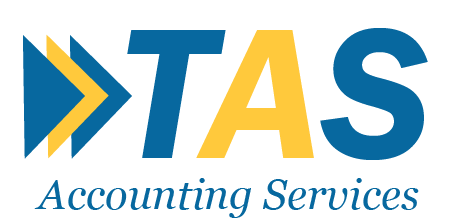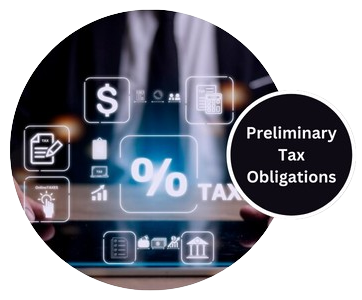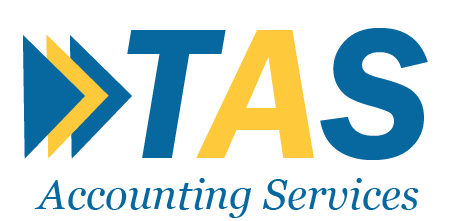Benefits of Establishing a Company in Ireland for Non-EEA Residents
1. Access to the European Union Market
Unrestricted Trade and Movement
Ireland, as a member of the European Union (EU), provides companies with direct access to the EU’s single market. This offers significant advantages for businesses looking to expand their reach across Europe.
- Single Market Access: Companies can trade freely within the EU, benefiting from the absence of trade barriers such as tariffs and quotas.
- Customs Union: Simplifies trade procedures with other EU countries, reducing the costs and complexities associated with cross-border trade.
Gateway to Europe
Ireland serves as a strategic gateway to the European market for businesses outside the EEA.
- Business Expansion: Non-EEA companies can use Ireland as a base to enter and expand into the broader European market.
- Cultural and Business Alignment: Ireland’s business environment aligns well with both European and global markets, facilitating smooth operations and market penetration.
2. Favourable Tax Environment
Competitive Corporate Tax Rate
Ireland’s corporate tax rate is one of the most competitive in the world, attracting a wide range of businesses.
- Standard Rate: The standard corporate tax rate for trading income is 12.5%, which is significantly lower than the average rates in many other countries.
- Low Non-Trading Income Rate: Non-trading income is taxed at 25%, which remains competitive globally.
Tax Incentives and Reliefs
Ireland offers various tax incentives and reliefs that benefit businesses.
- Research and Development (R&D) Tax Credits: Companies can claim substantial credits for qualifying R&D expenditures, reducing their overall tax liability.
- Knowledge Development Box (KDB): Provides a reduced tax rate of 6.25% on income from certain intellectual property, encouraging innovation and investment in technology.
3. Strong Legal and Regulatory Framework
Robust Legal System
Ireland has a well-developed and transparent legal system that protects the rights of businesses and investors.
- Common Law System: Based on English common law, it provides a familiar legal framework for businesses from many non-EEA countries.
- Investor Protection: Strong legal safeguards for intellectual property and contract enforcement enhance investor confidence.
Ease of Doing Business
Ireland ranks highly in global ease of doing business indices, making it an attractive destination for setting up a company.
- Efficient Business Setup: The company formation process is straightforward, with clear guidelines and supportive agencies.
- Regulatory Support: The Irish government and various agencies offer support and resources to help businesses comply with local regulations.
4. Skilled Workforce and Talent Pool
Highly Educated Workforce
Ireland boasts a highly skilled and educated workforce, particularly in sectors such as technology, pharmaceuticals, and finance.
- World-Class Education: The country has several top universities and research institutions that produce a steady stream of qualified graduates.
- Language Advantage: English is the primary language of business, which facilitates communication and operations for non-EEA companies.
Access to Talent
Ireland’s favorable immigration policies make it easier to attract and retain international talent.
- Work Permits and Visas: Various schemes are available to help businesses bring in skilled non-EEA workers.
- Multinational Presence: A strong presence of multinational companies fosters a vibrant job market and talent exchange.
5. Business-Friendly Policies and Support
Government Support Programs
Ireland offers a range of support programs and incentives for businesses.
- Enterprise Ireland: Provides funding, advisory services, and resources for startups and expanding businesses.
- Local Enterprise Offices: Offer support and funding for small businesses and entrepreneurs at the regional level.
Pro-Business Environment
Ireland’s government is committed to maintaining a pro-business environment through favorable policies and reforms.
- Stable Economy: A stable political and economic climate provides a secure environment for business operations.
- Innovation Encouragement: Policies encourage innovation and investment in high-growth sectors.
6. Favorable Corporate Governance and Compliance
Simplified Corporate Governance
Ireland’s corporate governance requirements are straightforward, making compliance manageable for businesses.
- Flexibility in Structure: Companies can choose from a variety of legal structures to suit their specific needs.
- Transparent Regulations: Clear and transparent regulatory requirements reduce the risk of compliance issues.
Compliance and Reporting Ease
Ireland’s regulatory framework for corporate compliance is designed to be user-friendly and supportive of business growth.
- Annual Reporting: The requirements for annual returns and financial reporting are well-defined and streamlined.
- Data Protection Compliance: Ireland’s adherence to GDPR provides robust data protection, which is crucial for international businesses.
7. Access to Financial Markets and Investment Opportunities
Thriving Financial Sector
Ireland is a major hub for international finance, offering access to a wide range of financial services.
- Global Financial Center: Dublin is recognized as a leading financial center, providing services in banking, investment, and asset management.
- Funding Availability: A strong network of banks, venture capitalists, and investors is available to support business growth.
Investment Incentives
Ireland offers various incentives to attract foreign direct investment.
- Investment Grants: Available for qualifying projects, particularly in high-tech and innovative sectors.
- Tax Reliefs: Generous tax reliefs for investors and companies investing in certain areas or activities.
8. Strong Infrastructure and Connectivity
Advanced Infrastructure
Ireland boasts a robust infrastructure that supports business operations and growth.
- Transport Links: Well-developed transport networks facilitate easy movement of goods and services.
- Digital Connectivity: Excellent broadband and ICT infrastructure support digital businesses and global communication.
Strategic Location
Ireland’s location provides strategic advantages for international businesses.
- Transatlantic Gateway: Acts as a bridge between North America and Europe, offering logistical advantages for trade and travel.
- Time Zone Benefits: Convenient time zone for doing business with both the Americas and Europe.
9. Quality of Life and Living Conditions
High Quality of Life
Ireland offers a high standard of living, making it an attractive location for both business and residence.
- Healthcare and Education: Excellent healthcare and education systems support a good quality of life.
- Cultural and Social Life: Rich cultural heritage and vibrant social scene contribute to a pleasant living environment.
Safe and Welcoming Environment
Ireland is known for its safety, friendliness, and welcoming attitude towards foreign nationals.
- Diverse Communities: A multicultural society with diverse communities from around the world.
- Safe Living: Low crime rates and a strong sense of community make Ireland a safe place to live and work.
End Note
Establishing a company in Ireland as a non-EEA resident offers numerous benefits, from accessing the European market to leveraging a favorable tax regime and a supportive business environment. Ireland’s skilled workforce, strategic location, and robust legal framework make it an ideal destination for business growth and international expansion. By taking advantage of these benefits, non-EEA residents can successfully establish and grow their businesses in Ireland.
Ongoing Compliance Requirements for Companies in Ireland
1. Annual Returns and Financial Statements
Filing Annual Returns
All companies in Ireland are required to file an annual return with the Companies Registration Office (CRO).
- When to File: The first annual return is due six months after incorporation. Subsequent returns are due every 12 months.
- Content: The return must include details of the company’s directors, secretary, registered office, and share capital.
- Late Filing Penalties: Failure to file on time can result in late filing penalties and, potentially, the loss of audit exemption.
Preparing and Submitting Financial Statements
Depending on the size of the company, annual financial statements must be prepared and filed.
- Audit Requirements: Larger companies must have their financial statements audited by a registered auditor.
- Filing with CRO: Submit financial statements along with the annual return. Small companies may qualify for certain exemptions but must still file statements.
2. Corporation Tax Returns
Filing and Payment
Companies must file an annual corporation tax return with the Irish Revenue Commissioners.
- Deadline: The tax return is due nine months after the end of the accounting period.
- Preliminary Tax: Payment of preliminary tax is typically due one month before the accounting period ends.
Tax Rate
- Standard Rate: The standard corporate tax rate for trading income is 12.5%. Non-trading income is taxed at 25%.
3. Value-Added Tax (VAT)
VAT Registration
Companies engaging in taxable activities must register for VAT.
- Threshold: The registration threshold is €37,500 for services and €75,000 for goods.
- Obligations: VAT-registered businesses must charge VAT on their products or services and file periodic returns.
VAT Returns
- Frequency: VAT returns are usually filed bi-monthly, though some businesses may file quarterly or annually.
- Deadline: Returns and payments are due on the 23rd day of the month following the end of the VAT period.
4. PAYE/PRSI
Registration and Filing
If your company employs staff, you must register for Pay As You Earn (PAYE) and Pay Related Social Insurance (PRSI).
- Employee Deductions: Deduct and remit income tax, social insurance, and Universal Social Charge (USC) from employee wages.
- Filing Requirements: Submit monthly payroll returns to Revenue and ensure all payments are made on time.
5. Company Records Maintenance
Statutory Registers
Maintain accurate statutory registers, including:
- Register of Members: Details of company shareholders.
- Register of Directors and Secretary: Information about the company’s directors and secretary.
- Register of Charges: Records of any secured charges on the company’s assets.
Minute Book
Keep a minute book to record minutes of general meetings, board meetings, and resolutions.
Changes in Company Details
- Reporting Changes: Notify the CRO of any changes to company details, such as changes in directors, registered office, or share capital, within 14 days of the change.
6. Compliance with Employment Law
Contracts and Employment Terms
- Written Contracts: Provide written contracts to employees detailing terms and conditions of employment.
- Minimum Wage and Working Hours: Adhere to minimum wage laws and regulations on working hours, breaks, and holidays.
Workplace Safety
- Health and Safety Regulations: Implement health and safety measures to comply with the Safety, Health and Welfare at Work Act.
- Risk Assessments: Conduct regular risk assessments and provide necessary training and safety equipment.
7. Data Protection Compliance
General Data Protection Regulation (GDPR)
- Data Security: Implement data protection policies to safeguard personal data and comply with GDPR requirements.
- Privacy Notices: Provide clear privacy notices explaining how personal data is collected, used, and stored.
Data Breach Reporting
- Breach Notification: Notify the Data Protection Commission (DPC) within 72 hours of a data breach that affects personal data.
8. Sector-Specific Regulations
Industry Licenses and Permits
- Regulatory Compliance: Ensure compliance with specific industry regulations and licensing requirements.
- Periodic Renewals: Keep track of renewal dates for any licenses or permits.
9. Beneficial Ownership Disclosure
Register of Beneficial Owners
- Filing Requirements: Maintain a Register of Beneficial Owners (RBO) and file details with the Central Register of Beneficial Ownership.
- Updates: Update the register within 14 days of any changes in beneficial ownership.
10. Anti-Money Laundering (AML) Compliance
AML Policies
- Risk Assessment: Implement AML policies and conduct risk assessments to prevent money laundering and terrorist financing.
- Customer Due Diligence: Perform due diligence checks on customers to verify their identity and assess risk.
11. Compliance Audits
Regular Audits
Conduct regular compliance audits to ensure adherence to all relevant laws and regulations.
- Internal Reviews: Perform internal reviews of company practices and processes.
- External Audits: Consider engaging external auditors to assess compliance and identify areas for improvement.
12. Environmental Compliance
Environmental Regulations
- Regulatory Requirements: Comply with environmental regulations relevant to your business operations.
- Waste Management: Implement waste management practices and pollution controls as required by law.
13. Intellectual Property Protection
Intellectual Property Registration
- IP Protection: Register trademarks, patents, and copyrights to protect your intellectual property.
- Regular Monitoring: Monitor for potential infringements and take legal action if necessary.
14. Legal and Contractual Obligations
Contract Management
- Review Contracts: Regularly review contracts with suppliers, customers, and partners to ensure compliance with terms and conditions.
- Legal Updates: Stay informed of changes in laws that may affect contractual obligations.
15. Corporate Governance
Board Meetings and Resolutions
- Meeting Requirements: Hold regular board meetings and general meetings as required by company law.
- Resolution Documentation: Document all resolutions passed by the board and shareholders.
Closing Remarks
Ongoing compliance is essential for maintaining your company’s legal standing and reputation in Ireland. By understanding and adhering to these requirements, you can avoid penalties, ensure smooth operations, and build a solid foundation for long-term success. Regularly review your compliance practices and seek professional advice to stay updated with any changes in regulations.
Challenges and Considerations for Non-EEA Residents Starting a Company in Ireland
1. Resident Director Requirement
Challenge: Compliance with Local Laws
Irish law requires that at least one director of a company be a resident of an EEA member state. For non-EEA residents, this poses a significant compliance challenge.
Considerations:
- Section 137 Bond: Obtain a Section 137 bond, which serves as a security against potential non-compliance with Irish company law. This bond costs around €2,000 for a two-year period and covers fines up to €25,000.
- Appointing an EEA-Resident Director: Consider appointing a director who is an EEA resident. This person will need to meet the legal obligations and responsibilities associated with the role.
- Professional Assistance: Engage with business advisors or legal experts who can guide you through the process and help you meet compliance requirements.
2. Visa and Work Permit Requirements
Challenge: Securing the Right to Work and Reside
Non-EEA residents must obtain the appropriate visas or work permits to legally reside and work in Ireland.
Considerations:
- Visa Types: Determine the most suitable visa type, such as the Start-up Entrepreneur Programme (STEP) for high-potential start-up’s, or the Business Permission for investors and entrepreneurs.
- Application Process: The visa application process can be complex and time-consuming. Ensure you start the process early and gather all required documentation.
- Legal Advice: Seek advice from immigration specialists to navigate the visa and work permit requirements effectively and avoid common pitfalls.
3. Understanding Local Taxation and Compliance
Challenge: Navigating the Irish Tax System
The Irish tax system, while favourable, involves various obligations that must be met to ensure compliance.
Considerations:
- Tax Registration: Register for taxes such as corporation tax, VAT, and PAYE/PRSI if you have employees.
- Filing Requirements: Understand the filing deadlines and requirements for tax returns to avoid penalties.
- Tax Incentives: Explore available tax incentives and reliefs, such as R&D tax credits and the Knowledge Development Box (KDB), to optimize your tax liabilities.
- Professional Guidance: Work with accountants or tax advisors who are familiar with Irish tax law to ensure accurate compliance and reporting.
4. Legal and Regulatory Compliance
Challenge: Adhering to Irish Laws and Regulations
Setting up a company in Ireland involves complying with a range of legal and regulatory requirements.
Considerations:
- Company Formation: Ensure you follow the correct procedures for company registration, including preparing incorporation documents and filing with the Companies Registration Office (CRO).
- Ongoing Compliance: Stay compliant with annual return filings, financial statements, and other statutory requirements.
- Data Protection: Comply with data protection regulations such as GDPR to safeguard personal data and avoid hefty fines.
5. Establishing a Local Presence
Challenge: Setting Up Operations in Ireland
Establishing a local presence involves logistical and operational challenges, especially if you are setting up remotely.
Considerations:
- Registered Office: Secure a registered office address in Ireland for official correspondence. This can be different from your operational address.
- Bank Account: Open a local business bank account to facilitate financial transactions and meet banking requirements.
- Professional Network: Build a network of local professionals, such as lawyers, accountants, and business advisors, to support your operations and help navigate the local business landscape.
6. Navigating Cultural and Market Differences
Challenge: Understanding the Local Business Environment
Non-EEA residents may face challenges in understanding and adapting to the Irish business culture and market conditions.
Considerations:
- Market Research: Conduct thorough market research to understand local demand, competition, and consumer behavior.
- Cultural Adaptation: Be aware of cultural nuances and business practices in Ireland to build strong relationships with local stakeholders.
- Local Partnerships: Consider forming partnerships with local businesses to gain insights and leverage established networks.
7. Access to Funding and Financial Resources
Challenge: Securing Financial Support
Accessing funding and financial resources can be challenging for non-EEA residents, particularly for new businesses.
Considerations:
- Government Grants: Explore grants and funding opportunities offered by Enterprise Ireland and Local Enterprise Offices.
- Investor Networks: Engage with investor networks and venture capitalists who are open to funding foreign-owned businesses in Ireland.
- Bank Financing: Build a relationship with local banks to secure loans or other financial products suitable for your business needs.
8. Employment and Staffing Issues
Challenge: Recruiting and Managing Staff
Hiring employees in Ireland involves compliance with local employment laws and managing staffing issues.
Considerations:
- Employment Law: Familiarize yourself with Irish employment laws, including contracts, minimum wage, and working conditions.
- Recruitment: Develop a recruitment strategy to attract local talent. Use local job boards and recruitment agencies to find qualified candidates.
- Employee Benefits: Offer competitive benefits to attract and retain skilled workers. Consider health insurance, retirement plans, and flexible working arrangements.
9. Managing Currency and Exchange Rate Risks
Challenge: Handling Multiple Currencies
Non-EEA residents may need to manage transactions in different currencies, leading to potential exchange rate risks.
Considerations:
- Currency Hedging: Use hedging strategies to mitigate the risk of currency fluctuations affecting your business.
- Multi-Currency Accounts: Open multi-currency accounts to manage foreign transactions more effectively and reduce exchange fees.
- Financial Advice: Consult with financial experts to develop a strategy for managing currency risks and optimizing financial performance.
10. Intellectual Property Protection
Challenge: Securing Intellectual Property Rights
Protecting your intellectual property (IP) in Ireland is crucial for safeguarding your business’s innovations and brand.
Considerations:
- IP Registration: Register trademarks, patents, and copyrights with the Irish Patents Office to protect your IP rights.
- IP Enforcement: Understand the legal mechanisms for enforcing IP rights in Ireland and take action against infringements.
- Professional Support: Seek advice from IP specialists to navigate the registration process and develop strategies for IP protection.
11. Addressing Environmental and Regulatory Compliance
Challenge: Meeting Environmental Standards
Compliance with environmental regulations is increasingly important for businesses operating in Ireland.
Considerations:
- Environmental Regulations: Familiarize yourself with local environmental regulations and ensure your business meets the required standards.
- Sustainability Initiatives: Implement sustainable practices to reduce your environmental impact and enhance your company’s reputation.
- Compliance Audits: Conduct regular compliance audits to identify and address potential environmental issues.
12. Preparing for Market Competition
Challenge: Competing in a New Market
Understanding and addressing competition is crucial for success in the Irish market.
Considerations:
- Competitive Analysis: Conduct a thorough analysis of your competitors to understand their strengths and weaknesses.
- Unique Selling Proposition (USP): Develop a clear USP to differentiate your business from competitors and attract customers.
- Marketing Strategy: Create a comprehensive marketing strategy tailored to the Irish market, focusing on online and offline channels.
Final Words
Starting a company in Ireland as a non-EEA resident involves navigating various challenges and considerations. By understanding the requirements and preparing adequately, you can overcome these obstacles and establish a successful business. Seek professional advice, conduct thorough research, and leverage local resources to ensure compliance and capitalize on the opportunities Ireland offers.



























